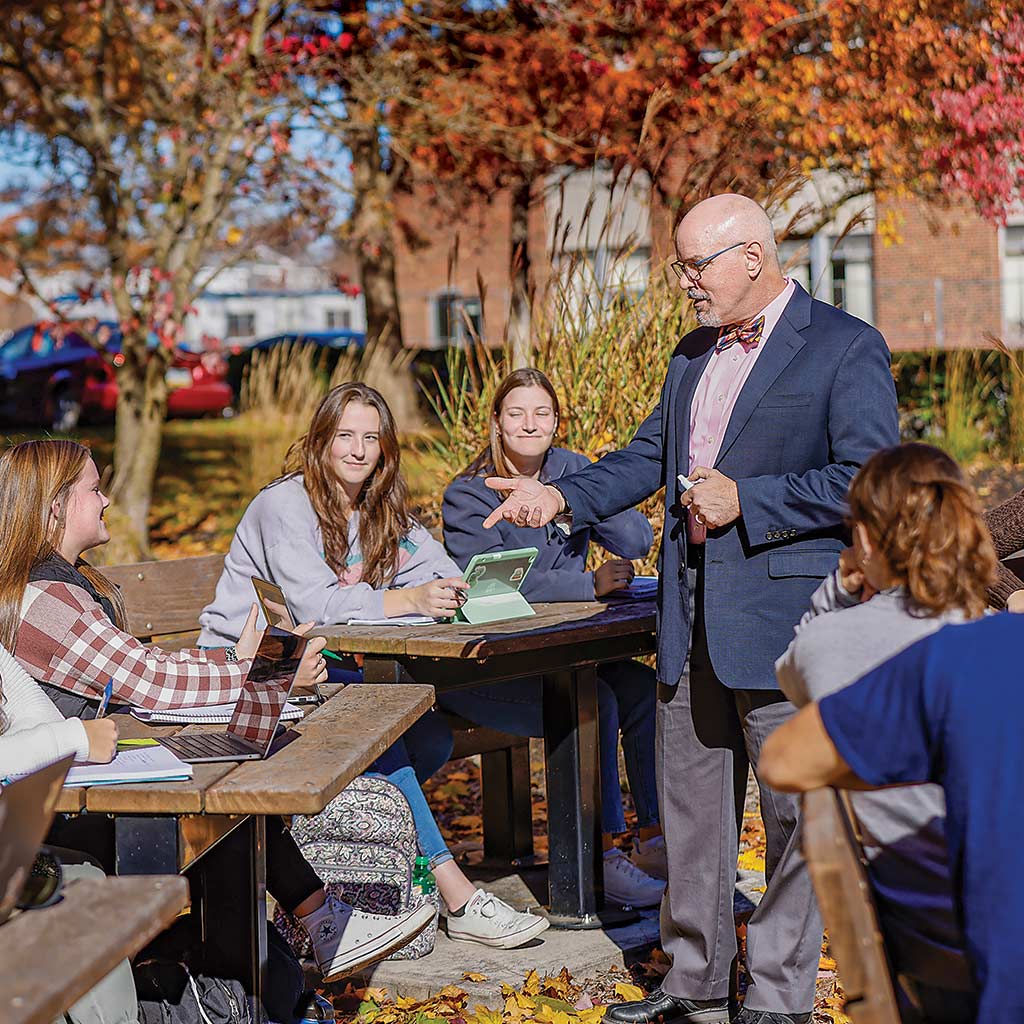When 18-year-old Jim Tuten stood before a mailbox in Varnville, South Carolina, college application for a wildlife biology program in hand, he changed his mind.
“I felt a certain rootedness where I grew up. It’s where my ancestors had been for a long time,” Tuten recalled. “I remember dropping off my application to the land grant university and thinking, ‘I want a different experience.’ My AP English teacher kept talking to us about getting a liberal arts education, which was the first time I’d ever heard anyone talk about that.”
From that moment on, the liberal arts would inspire him, and direct him to inspire others. A few years later, at the College of Charleston, with his degree in history and fine art nearly complete, he reached another tipping point that pushed him further down the path of academia.
“One of my favorite history professors suggested I think about graduate school. It was a chance conversation. Graduate school was not on my radar,” Tuten said. “The fact that he thought I could do it made me begin to investigate the possibility.”
The rest is history.
Tuten, Charles R. and Shirley A. Knox Professor of History at Juniata, is well-known on campus for an excellent bow tie collection, the History of Food course, his award-winning advising style (see page 33), and his unwavering commitment to the liberal arts. After receiving his master’s degree at Wake Forest University and completing his Ph.D. at Emory University, Tuten and his wife, Belle Tuten (Charles A. Dana Professor of History), came to Juniata when Belle joined the faculty. A year later, Tuten was asked to fill in as a sabbatical replacement teaching U.S. history. He soon joined the faculty as well.
“This is my 25th year. One of the things I’m most appreciative of has been the freedom to develop courses that let me teach things I love,” he said. “There’s no reason not to show up every day with a boatload of enthusiasm for the content. That’s an incredible opportunity to match what you care the most about.”
Courses like History of Food, Low Country and Gullah Culture, and Plants, Plantations, and Creole Culture, a short-term study abroad course in which students travel to Barbados, draw clear interdisciplinary connections for Juniata students.
“I don’t expect them to be food historians or make their livelihood related to food, but they’re all going to eat, and they’re all going to need community wherever they go in the future,” Tuten said. “If they put some of the pieces together, even if they don’t think back to what they learned in the course, it’s one of the little bits of their knowledge and experience from their time here that shapes the person they get to be.”
Advising is also an important area in which Tuten enjoys the opportunity to guide others on their paths during and after their time at Juniata. This includes his leadership as an adviser for aspiring Fulbright scholars. Recognized with both Juniata’s inaugural Eagle Advising Award and the Excellence in Advising Award through NACADA, a national academic advising organization, Tuten makes sure that his advisees are as likely to meet with him in his office as they are over a meal or around a campfire at Swamptopia.
That’s right: Swamptopia.
“The name began as a joke in our department. I bought a couple of acres in a flood plain and dubbed it ‘Swamptopia’ in front of some students. The main goal was gardening,” Tuten said with a laugh, adding that he comes from a farming family where everyone had a garden. “When the purchase went through, the students wanted to see it. In the spring, we had them out and made a bonfire.”
The twice-yearly trek to Swamptopia is now a beloved History Department tradition.
“Every fall and spring, we invite history students and those from other fields who want to come. There are some students who I only ever knew from their attendance at Swamptopia,” he said. “These relationships help people get to know one another. These pieces constitute the glue that builds community in our department.”





